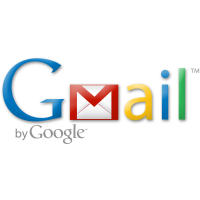Judge Gives Go-Ahead to Case Equating Gmail Scanning with Wiretapping

Attorneys for the plaintiffs in a massive class action lawsuit against Google won a battle in federal court in California last week, as U.S. District Judge Lucy Koh ruled against a request by the Internet giant to dismiss the case—but the war may already be lost.
In the case filed in federal court in San Jose, a group of named plaintiffs have sued Google for violating the federal Wiretap Act by scanning emails sent or received via its Gmail service for words and content, and intentionally intercepting messages between non-Gmail subscribers and subscribers.
Google sought to have the case dismissed under a section of the Act that allows email providers to intercept messages if doing so helped in delivering the message or was incidental to the functioning of the service in general. Judge Koh, however, rejected that argument, finding that “the statute explicitly limits the use of service observing or random monitoring…to mechanical and service quality control checks…Congress did not intend to allow electronic communication service providers unlimited leeway to engage in any interception that would benefit their business models, as Google contends. In fact, this statutory provision would be superfluous if the ordinary course of business exception were as broad as Google suggests.”
Google also argued that Gmail users have consented to the scanning by signing on to Gmail’s Terms of Service and Privacy Policies, but Judge Koh ruled that “those policies did not explicitly notify Plaintiffs that Google would intercept users’ emails for the purposes of creating user profiles or providing targeted advertising.” She likewise rejected Google’s claim that non-users tacitly consented to the scanning by sending emails to Gmail users.
Gmail, including its business service called Google Apps, is the world’s biggest email service, with about 450 million users globally.
“The ruling means federal and state wiretap laws apply to the internet. It’s a tremendous victory for online privacy. Companies like Google can’t simply do whatever they want with our data and emails,” said Jon Simpson, the privacy director for Consumer Watchdog of Santa Monica, California.
Google said in a statement that it was “disappointed” with the ruling and was considering its legal options. “Automated scanning lets us provide Gmail users with security and spam protection, as well as great features like Priority inbox,” the company said.
But the victory over Google may live only a few weeks. Following cases that hold that no Internet-based communication can be considered confidential, Judge Koh found that the plaintiffs failed to show a reasonable expectation of privacy in their complaint.
“Plaintiffs have not alleged facts that lead to the plausible inference that the communication was not being recorded because email by its very nature is more similar to internet chats,” wrote Koh. “Unlike phone conversations, email services are by their very nature recorded on the computer of at least the recipient, who may then easily transmit the communication to anyone else who has access to the internet or print the communications.”
The judge gave the plaintiffs 21 days to change her mind, citing “an abundance of caution,” but if they are unsuccessful their case will be dismissed.
-Matt Bewig
To Learn More:
Google’s Gmail Keyword Scanning Might Violate Wiretap Law, Judge Finds (by David Kravets, Wired)
Wiretap Case Against Google Ducks Dismissal (by William Dotinga, Courthouse News Service)
In Re: Google Inc. Gmail Litigation (pdf)
Google Says Its Customers Shouldn’t Expect Any Email Privacy (by Noel Brinkerhoff, AllGov)
Class-Action Suit Alleges Google Violates California Law by Reading E-Mail (by Ken Broder, AllGov California)
- Top Stories
- Unusual News
- Where is the Money Going?
- Controversies
- U.S. and the World
- Appointments and Resignations
- Latest News
- Trump Orders ICE and Border Patrol to Kill More Protestors
- Trump Renames National Football League National Trump League
- Trump to Stop Deportations If…
- Trump Denounces World Series
- What If China Invaded the United States?






Comments